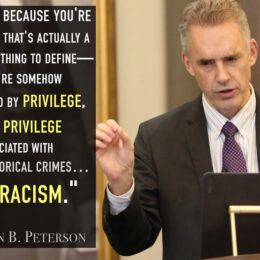Union-Tribune | Cheryl Clark & Leslie Berestein | Oct. 31, 2007
The fact that 11 of the 18 wildfire victims lying in UCSD Medical Center’s burn unit are illegal immigrants with no apparent health coverage highlights the daunting financial challenge hospitals face in providing long-term, intensive care for all those who need it.
“These are the most expensive kinds of cases, but we don’t look at these patients and say, oh, because they aren’t legal residents, we’ll stop providing care or stop changing their bandages,” said Dr. Thomas McAfee, UCSD’s physician-in-chief. “It’s part of our ethic to continue to provide this care no matter what.”
According to the Mexican Consulate in San Diego, the burn victims are from central and southern Mexico, and include one woman. Four are in critical condition. All were rescued north of Tecate last week, said consulate spokesman Alberto Lozano, and it is suspected they had crossed the border illegally before coming face to face with the Harris fire.
Four other people, two men and two women, were found dead Thursday in a ravine off state Route 94. Their badly burned bodies remain unidentified, although authorities suspect they crossed illegally before they died.
. . . more




Luke 10:25 And, behold, a certain lawyer stood up, and tempted him, saying, Master, what shall I do to inherit eternal life? 27: And he answering said, Thou shalt love the Lord thy God with all thy heart, and with all thy soul, and with all thy strength, and with all thy mind; and thy neighbour as thyself. 28: And he said unto him, Thou hast answered right: this do, and thou shalt live. 29: But he, willing to justify himself, said unto Jesus, And who is my neighbour?
30: And Jesus answering said, A certain man went down from Jerusalem to Jericho, and fell among thieves, which stripped him of his raiment, and wounded him, and departed, leaving him half dead. 31: And by chance there came down a certain priest that way: and when he saw him, he passed by on the other side. 30: And Jesus answering said, A certain man went down from Jerusalem to Jericho, and fell among thieves, which stripped him of his raiment, and wounded him, and departed, leaving him half dead. 31: And by chance there came down a certain priest that way: and when he saw him, he passed by on the other side. 32: And likewise a Levite, when he was at the place, came and looked on him, and passed by on the other side.
33: But a certain Samaritan, as he journeyed, came where he was: and when he saw him, he had compassion on him, 34: And went to him, and bound up his wounds, pouring in oil and wine, and set him on his own beast, and brought him to an inn, and took care of him. 35: And on the morrow when he departed, he took out two pence, and gave them to the host, and said unto him, Take care of him; and whatsoever thou spendest more, when I come again, I will repay thee.
36: Which now of these three, thinkest thou, was neighbour unto him that fell among the thieves? 37: And he said, He that shewed mercy on him. Then said Jesus unto him, Go, and do thou likewise.
Sometimes acting the way Christ directed us seems like a fools errand, but I believe the Lord rewards those people (both singular and plural) who demonstrate faith by serving others without any apparent reward.
Indeed! Isn’t it interesting how our non-socialized medical system is actually relying on the generosity, ethics, and love of millions of law-abiding citizens and providing world-class medical care to people in dire need without demanding anything in return.
note #2:
Well, semi-non-socialized :). Without looking up anything about “UCSD Medical Center” I bet it is operating under a license that requires them to provide care to indigent care, and in return they probably get tax breaks and the like that partially offset the costs. The rest are simply passed on to those that do pay *that is the rest of us*.
As noble as all this sounds, it simply does not have much to do with the long Scriptural passage cited by Dean. You would have to add to the parable quite a bit, including an armed agent of the state (a roman centurion) who by the point of the sword forces both the Samaritan and the inn keeper to do what they did. Don’t forget the various parties standing on the sidelines agitating for this or that treatment, dragging in the priest and Levite into court, all the while being sure someone else is providing the silver.
Changes the meaning just a bit does it not? Apparently, socialism is not quite the same thing as the Gospel…
Chris – What are your thoughts on a guest worker program?
I can’t even begin to think about a guest worker program until (a) Bush and the federal gov’t bother to fully enforce the immigration laws we have now, (b) the US gov’t gets a handle on the tsunami of illegal immigrants entering our country every year and actually enforces our borders, and (c) we deal ethically and legally with the 12-15 million illegal immigrants here now without rewarding their illegal conduct and insulting the tens of millions of legal immigrants that follow all the rules and respected the sovereignty and laws of this country. Once that gets dealt with, we can consider a well regulated, monitored, and enforced guest worker program.
Unfortunately President Bush and too many in Congress are not really serious about dealing with these issues and have made only token gestures to fool us into thinking they’re doing something meaningful about it. They’re allowing the current dysfunctional situation to worsten and creating bigger headaches for our country and future generations.
Unfortunately President Bush and too many in Congress are not really serious about dealing with these issues
I think they are serious, just serious about dealing with them in an un-conservative way. The problem with the GOP since Goldwater has been the un-easy alliance between the grassroots conservatives (whether “social”, “traditional”, or even “libertarian”) and the big business liberals who actually run the GOP. Think about it, the conservatives only get their way (in actual governance) if the big business liberals do not want something different.
Big business is all “wet” on illegal immigration because it will hurt their bottom line if the government does anything more than token enforcement. Consequences to the culture? What’s that to them?
The coming full socialization of medicine will NOT be led by the Democrats, because everyone knows they are fiscally irresponsible and unrealistic about government. It will rather be led by GOP big business liberals similar to Bush and company (remember the prescription drug giveaway – the largest increase of the welfare state since LBJ – led by Bush and Newt Gingrich!) who want to transfer the costs of medical care off of their books (now in the form of an employee benefit) to the employee himself (in the form of taxes/increased government).
It’s that point in history where conservatives need to un-hitch our wagon from the GOP. We gave it a go for the last 50 years at least, it is an almost complete failure (except for the occasional bone by the GOP, like a judge or two)…
Borrowing a phrase from Ronald Reagan and adjusting it to our current situation: “We didn’t leave the GOP. The party left us.” Unfortunately very little in the leadership and actions of President Bush and far too many Republicans reflects the moral clarity and resembles the conservative values so many us cherish and respect. The damage done will reverberate for years to come. Sad, really sad!
Power is a centripetal force. The U.S. Constitution concentrated an incredible amount of power in the executive branch, relying on the Congress with its power base in the States to keep it in check. The Civil War effectively doomed real federalism because those who favored states rights were racist snobs. The passage of the amendment for direct election of U.S Senators was pretty much the last nail in the coffin. The balance of power shifted heavily toward the executive and has continued to grow. Short of either a revolution or a series of Constitutional amendments to restore federalism, the power of the executive will continue to grow. Statism that favors powerful business interests is very little different that statism that simply seeks to control everything in the name of the state. Everybody wants their share of the largess and power of the federal government and will do pretty much anything it takes to get it. Party labels are pretty much meaningless. There is no political philosophy that I have seen that really seeks to govern in the interests of the country as a whole. It is an ideological trap into which it is depressingly easy to fall.
For myself, I have decided that the political system is too corrupt to offer any genuine governance for the good of the country. It will not make an iota of a difference which political party is in “power” as they elite is effectively all part of the same oligarchy. There is no Cicero out there to try to old back the night in the vain hope of returning to actual republican principals. All we people want is our bread and circuses, which the politicians are happy to give us. One of those circuses is the Presidential election—a sham orgy of lies and posturing that contains no truth and will change nothing except the color of a few offices in Washington. My vote goes to none of the above. We’d do much better with a lottery system of filling “elective” office. Those in favor of a revival of the draft for military service and a system of universal service to the country ought to take their proposals all the way. Open up every elective office in the country to those with a minimal set of qualifications and get the squirrel cages running and do away with civil service jobs too. Have a rolling catalog of folks with similar skills all about the country and bring in new folks every 6 to 10 years. It couldn’t be any worse than it is now could it?
Christopher writes: “Without looking up anything about “UCSD Medical Center” I bet it is operating under a license that requires them to provide care to indigent care . . . ”
It is a university medical center and teaching hospital that would, as I recall from my hospital days, require providing care until the patient is stabilized. In the case of a burn patient I think it would be a long time before the patient would be considered stabilized. And even at that point, they can’t just throw some guy out in the street.
Christopher: ” . . . and in return they probably get tax breaks and the like that partially offset the costs. The rest are simply passed on to those that do pay *that is the rest of us*.”
They probably get a “disproportionate share” component in their Medicare and Medicaid payments. The state may also provide a subsidy. And there is also cost-shifting to paying cases, though with managed care that is harder to do. As a public hospital they may have some taxable business revenue to take a tax break against, though that is probably a small percentage of overall revenue.
But university teaching hospitals are under all sorts of financial pressure. Costs of care in teaching hospitals are always greater than in regular hospitals. There is also uncompensated care. Universities charge teaching hospitals a “pro-rate” for overhead services such as HR, payroll, facilities, etc., and it is not unusual for the pro-rate to exceed the costs of providing the service. Teaching hospitals have revenue-sharing agreements with the physician practice. And so on. In other words, the teaching hospital is often used as a “cash cow,” and uncompensated care is only one part of that. In my years in the finance department of a teaching hospital I often felt that there were many “Draculas” drinking off of us.
Christopher: “As noble as all this sounds, it simply does not have much to do with the long Scriptural passage cited by Dean.”
It’s relevant in the sense that caring for people who can’t pay for their own care is a good and kind thing, a morally significant thing. Personally, I think we should all feel good about that. We could live in a society in which people who can’t pay are left on the doorstep without care. I mean, we really could. But we don’t. The interesting question is why we don’t. I think the answer is that we, as a society, feel that as long as we have the resources we should care for these people.